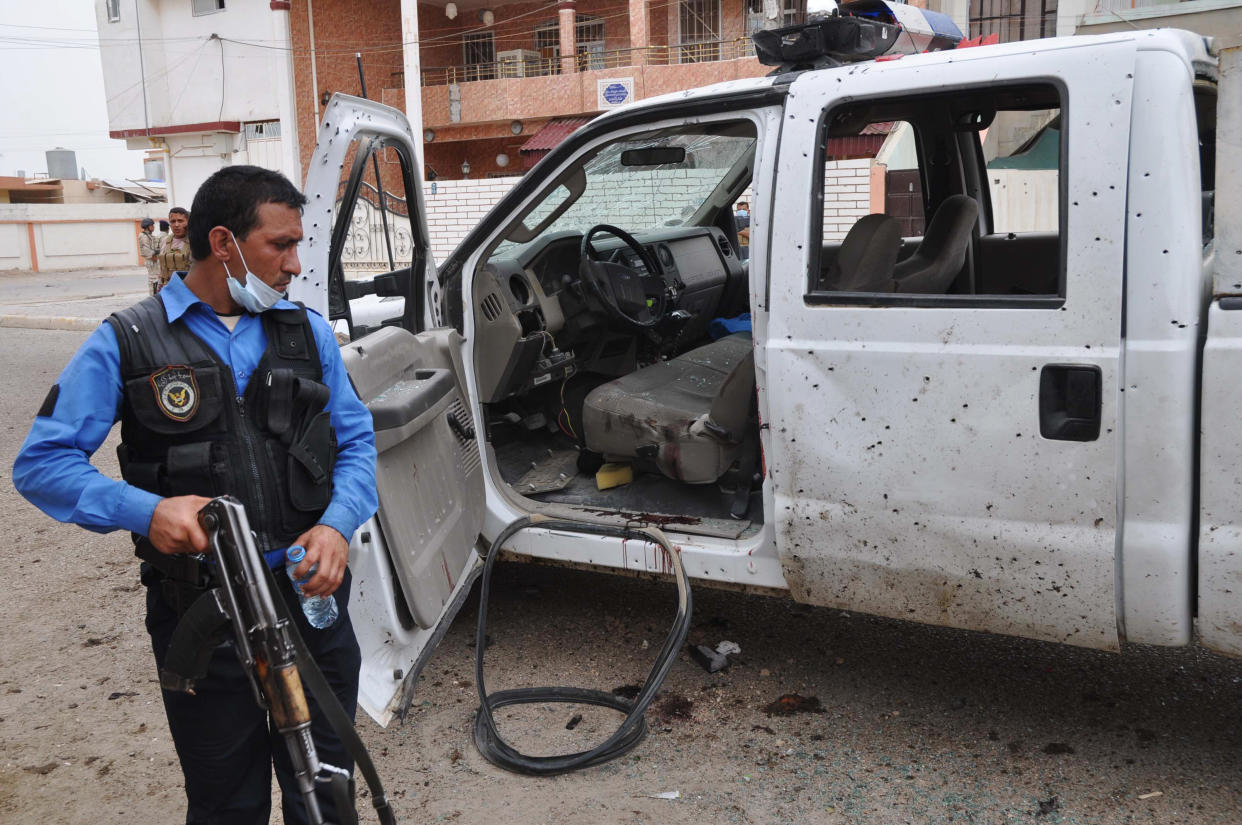Bombs kill at least 11 people at Iraq market

BAGHDAD (AP) — A pair of back-to-back bombs ripped through an outdoor market northeast of Baghdad on Tuesday, killing at least 11 people and wounding 19, officials said, the latest spasm of violence to convulse Iraq ahead of parliamentary elections.
The attacks are an apparent effort by the militants to discourage Iraqi voters from going to the polls on Wednesday in the first nationwide balloting since the 2011 withdrawal of U.S. forces.
Tuesday's attack took place in the town of al-Saadiyah, 140 kilometers (90 miles) northeast of Baghdad, a police officer said.
One of the bombs was placed in the middle of the town's main vegetable and meat market, he said, while the second was put near one of the exits — presumably trying to strike people fleeing from the first blast, a tactic widely used by insurgents in order to inflict as many casualties as possible.
A medical official confirmed the casualty figures. Both officials spoke on condition of anonymity because they were not authorized to talk to the media.
None immediately claimed responsibility for the attack, which bore the hallmarks of al-Qaida-inspired Sunni militants seeking to undermine the Shiite-led government's efforts to maintain security across the country ahead of Wednesday's polling.
Earlier Tuesday, the al-Qaida splinter group known as the Islamic State of Iraq and the Levant claimed responsibility for a wave of deadly attacks across Iraq on Monday, including a massive suicide bombing in a Kurdish town northeast of Baghdad that killed at least 25 people.
The bomber in the Monday evening attack in the Kurdish town of Khanaqin in the turbulent Diyala province blew himself up among a group of Kurds who were celebrating the appearance on local TV of Iraq's ailing president, Jalal Talabani, also a Kurd.
That explosion also wounded 35 people and sent the day's overall death toll from Iraq attacks to at least 46 people.
Talabani was shown after casting his ballot abroad as part of early and expat voting in his first public appearance since 2012. He has been in Germany for medical treatment following a stroke.
On Monday, insurgents mostly targeted polling stations where security forces were casting ballots two days ahead of the vote. The early balloting meant to give troops a chance to vote since most would be on duty on election day, guarding the polls.
In its statement posted on one of its Twitter accounts, the ISIL also took credit for some of Monday's attacks on polling stations. The authenticity of the statements could not be independently verified but its style was consistent with previous ones.
Emboldened by the successes of its fellow militants in the civil war next door in Syria and by widespread Sunni anger at the government in Baghdad, the group has strengthened since last year in Iraq.
Along with other insurgent groups, it has gained control since late last December of pockets of the provincial capital of Anbar province, Ramadi, and nearly all of the nearby city of Fallujah.
Due to the instability and clashes, there will be no balloting Wednesday in parts of Anbar.
More than 9,000 candidates are vying for 328 seats in parliament, which is widely expected to be won by an alliance led by Shiite Prime Minister Nouri al-Maliki, who is likely to seek a third four-year term in office.
_____
Follow Sinan Salahedding on Twitter at https://twitter.com/sinansm
_____
Associated Press writer Murtada Faraj contributed to this report from Baghdad.

